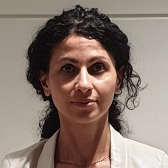Energy Efficient Systems, Sensors, and Smart Management Approaches for Industry 4.0
A special issue of Energies (ISSN 1996-1073).
Deadline for manuscript submissions: closed (31 October 2019) | Viewed by 9212
Special Issue Editors
Interests: renewable energy; sustainability; green management; green investment; environmetal protection
Special Issues, Collections and Topics in MDPI journals
Interests: filters; integrated circuits; MMIC; sensors; sensors interfaces
Special Issues, Collections and Topics in MDPI journals
Interests: sustainable rehabilitation; historical buildings; renewable energy; green infrastructures; construction site management; recycled and smart materials
Special Issues, Collections and Topics in MDPI journals
Special Issue Information
Dear Colleagues,
This Special Issue aims to address recent advances, technical challenges, and solutions for energy-efficient industry processes in terms of management, systems, and sensors for current industrial processes (Industry 4.0). The integration of high-tech systems for data storage and management, such as BIM software, with equipment always present on-site featuring ICT sensors represents the future of constructions in terms of quality of implementation, sharing of information, but above all in terms of rationalization of consumption and corporate risk management, in the construction site. Moreover, energy-efficient production systems and managerial approaches in Industry 4.0 present inevitable new challenges as sensing strategies and data analysis, presenting new opportunities from an environmental perspective. Prospective authors are invited to submit findings and explore emerging technologies with original research contributions and reviews.
Appropriate topics include, but are not limited to, the following:
- Efficient solutions for determining and integrating sensor/actuator for Industry 4.0
- Innovative sensing strategies for energy-efficient process monitoring
- Use of additive manufacturing in Industry 4.0
- Real-time manufacturing energy data analysis and diagnostics
- Internet-of-Things (IoTs)
- Solutions for a smart and efficient construction site
- Efficient production engineering computing
- BIM and sensors for the construction site
- Enviromental protection
- Sustainable production sysyem
Prof. Federica Cucchiella
Prof. Vincenzo Stornelli
Prof. Dr. Marianna Rotilio
Guest Editors
Manuscript Submission Information
Manuscripts should be submitted online at www.mdpi.com by registering and logging in to this website. Once you are registered, click here to go to the submission form. Manuscripts can be submitted until the deadline. All submissions that pass pre-check are peer-reviewed. Accepted papers will be published continuously in the journal (as soon as accepted) and will be listed together on the special issue website. Research articles, review articles as well as short communications are invited. For planned papers, a title and short abstract (about 100 words) can be sent to the Editorial Office for announcement on this website.
Submitted manuscripts should not have been published previously, nor be under consideration for publication elsewhere (except conference proceedings papers). All manuscripts are thoroughly refereed through a single-blind peer-review process. A guide for authors and other relevant information for submission of manuscripts is available on the Instructions for Authors page. Energies is an international peer-reviewed open access semimonthly journal published by MDPI.
Please visit the Instructions for Authors page before submitting a manuscript. The Article Processing Charge (APC) for publication in this open access journal is 2600 CHF (Swiss Francs). Submitted papers should be well formatted and use good English. Authors may use MDPI's English editing service prior to publication or during author revisions.
Keywords
- Industry 4.0
- ICT
- BIM
- Internet-of-Things
- sensors for industry and construction site
- cgreen management
- environmental protection
Benefits of Publishing in a Special Issue
- Ease of navigation: Grouping papers by topic helps scholars navigate broad scope journals more efficiently.
- Greater discoverability: Special Issues support the reach and impact of scientific research. Articles in Special Issues are more discoverable and cited more frequently.
- Expansion of research network: Special Issues facilitate connections among authors, fostering scientific collaborations.
- External promotion: Articles in Special Issues are often promoted through the journal's social media, increasing their visibility.
- e-Book format: Special Issues with more than 10 articles can be published as dedicated e-books, ensuring wide and rapid dissemination.
Further information on MDPI's Special Issue polices can be found here.







